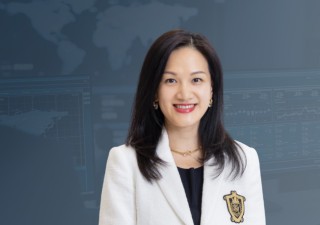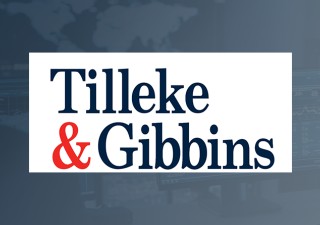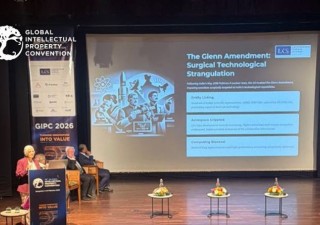Combatting piracy in Southeast Asia: Insights from the Premier League
31 May 2024

Football is the world’s most popular sport, and the Premier League is home to some of its most popular teams and players, all of which makes it susceptible to piracy. Aaron Herps, the Premier League’s APAC head of content protection, shares some of the efforts the league is undertaking to slow piracy in Southeast Asia.
The Premier League is one of the most popular and widely watched football leagues in the world, with a significant and passionate following across Asia. The league’s immense popularity in the region brings with it a persistent challenge: the growing threat of piracy. This illegal activity undermines the integrity of sports broadcasting and exposes football fans in Asia to potential cyber risks.
This challenge was the driving force behind the Premier League’s first international office, which opened in Singapore in 2019. One of the reasons the office was established was to work more closely with local broadcast partners and to develop a greater understanding of fans across the region and the way they watch Premier League football, helping to create a tailored approach to tackling piracy.
As we mark five years of operation in the region, it is an opportunity to take stock of the progress made in the protection of the Premier League’s intellectual property (IP) and look ahead to what's needed in the future.
Education
The Premier League’s “Boot Out Piracy” campaign was launched five years ago, with football stars helping to raise awareness around the risks of streaming pirated content.
As part of the campaign, recent research conducted by Professor Paul Watters, a renowned cyber-security expert, focused on 25 popular streaming sites and illicit streaming devices (ISDs) in Singapore, highlighting the significant dangers consumers face when accessing pirated content. Professor Watters’ findings reveal that users of these illicit platforms are almost four times more likely to encounter online scams compared to those visiting mainstream streaming sites. In a separate study by White Bullet Solutions, commissioned by the Premier League, the majority of advertisements on these pirated sites were identified as “high risk,” with an alarming 82 percent of top pirate sites in Vietnam and 50 percent in Malaysia displaying such risky ads.
The research demonstrates how cybercriminals exploit streaming piracy as bait, drawing in consumers with the allure of free or inexpensive premium entertainment, only to launch various cyberattacks. These include the distribution of malware, phishing schemes, identity theft, credit card fraud and exploitation of user data. This growing body of research not only reiterates the dangers of pirated content but also highlights ongoing need for the Boot Out Piracy campaign to enhance consumer awareness of these risks.
As the study indicates, 40 percent of Singaporeans surveyed are not confident in recognizing online scams, emphasising the urgency and importance of the Premier League’s efforts to combat online piracy and enhance consumer safety.
Challenges and collaborative solutions
Moving beyond education into action, we have taken large strides in just five years. We have successfully blocked more than 500 domains across websites and infringing apps in Singapore alone, as well as website blocks in Malaysia, Vietnam and Indonesia. We have also secured legal precedents and supported notable police raids across the region.
Enhancing our efforts against IP crime requires maintaining strong partnerships with our broadcast partners across the region. Yet, to achieve greater success, it is imperative to broaden our collaboration. This means engaging a diverse range of organizations, extending across various sectors, and fostering cooperation beyond national boundaries. By doing so, we can more effectively tackle the complexities of IP crime on a regional and global scale.
The crucial role of collaboration between the private and public sectors in fighting piracy cannot be emphasized enough. Protecting IP rights requires a united approach that involves law enforcement agencies and governments working together with rights owners. Without such cooperation, effectively mitigating piracy becomes significantly more difficult.
Over the past five years, success that has been achieved in Southeast Asia has been centred around strategic collaborations that span our broadcaster partners, public authorities and international organisations such as the Coalition Against Piracy. A snapshot of action taken in Singapore in the past five years demonstrates this neatly:
- In September 2021, Singapore updated and amended the Copyright Act, in the process introducing the new provision, Section 150, that banned the sale of pirate set-top boxes - illicit streaming devices (ISDs) that enable consumers to access unauthorised content from illegal sources online. This culminated in a widely publicized crackdown in October 2022 by the Singapore Police Force, with the close support of the Premier League who assisted in the identification of ISD sellers and infringing devices, and provided comprehensive post-enforcement evidence. Officers from the Criminal Investigation Department raided shops in Sim Lim Square, seized more than 2,500 sets of the devices and arrested 17 people. In addition to the Premier League, the copyright infringement was against multiple other international organizations such as Disney, Netflix and other members of the Alliance of Creativity and Entertainment (ACE). Since the raids, there has been a significant reduction in the availability of ISDs for sale. The legal proceedings against the accused are ongoing.
- In March 2024, the Premier League was granted an order from the High Court of Singapore to force internet service providers (ISPs) to block access to 25 popular websites streaming pirated Premier League matches. This order set a new precedent by being broader in scope compared to previous orders. Ultimately, this action makes it increasingly challenging for pirate operators to evade detection and circumvent blocks.
Regional challenges: Taking the lead
Southeast Asia presents a diverse piracy landscape, with each market posing unique challenges for rights holders. We are willing to take on novel actions to protect the Premier League rights in these markets.
In November 2022, the Premier League, along with our broadcast partners, Astro, were successful in bringing a landmark action in the High Court of Malaysia in Kuala Lumpur that determined a local commercial premises had acted illegally when they broadcast Premier League matches without a legitimate commercial broadcast subscription, thus setting a clear precedent in the territory moving forward.
Vietnam presents distinct challenges with locally hosted piracy platforms, where until only recently, the absence of any successful copyright prosecutions fostered an environment that encouraged pirates and threatened IP rights. We are seeing positive change, however, and in April the Premier League was part of lengthy criminal action against a major global IPTV service whose operator was convicted in Hanoi People’s Court.
In Indonesia, piracy manifests through high utilization of social media. Localized distribution networks and unauthorized broadcasts by illegal cable operations, and the country’s geographically dispersed population, makes enforcement efforts even more difficult. However, an effective regulator in the Ministry of Communications and Informatics, coupled with an adaptive strategy to dealing with social media pirates, is having an impact on piracy distribution.
Local broadcasters are essential partners in combating piracy, and the Premier League recognizes the critical role they play. As an international organization, the Premier League brings vast experience and knowledge across multiple markets in tracking piracy, enforcement procedures, deterrents, and staying up-to-date with relevant technological changes. However, public bodies often prefer to work with local players who have a deep understanding of their specific market and established relationships within their region.
This preference for local partners underscores the importance of close collaboration between the Premier League, as the license owner, and our broadcast partners in each market. By making this partnership the core of our approach to anti-piracy in the region, we can effectively leverage the strengths of both parties. The Premier League is committed to investing in knowledge sharing, educating, and informing our local partners, empowering them with the benefits of our organization’s global footprint, experience, in-house legal skills, and technical expertise. By recognizing the value of local broadcasters and fostering strong partnerships, we can create a more robust and resilient anti-piracy strategy in each market.
Keeping pace is a constant challenge in this IP protection race. As detection improves and speed of response increases, pirating technology and methods evolve, making it difficult for public bodies to keep pace with these changes. This underscores the necessity for legislative reforms that empower courts to respond dynamically to emerging piracy tactics, as well as private entities with significant resources and specialist expertise who can play a crucial role in staying abreast of technological advancements and “upskill” enforcement bodies in individual markets.
Amplifying collective action
As we reflect on the challenges and successes of combating piracy in Southeast Asia, one resounding theme emerges – the power of collective action. The Premier League’s journey over the past five years highlights the pivotal role that collaboration plays in safeguarding IP rights and protecting consumers from cyber threats.
The work is far from over. All stakeholders – rights holders, broadcasters, governments, law enforcement agencies and technology partners – have a meaningful role to play by sharing expertise, resources and best practices. With greater collaboration amongst international organizations operating in this region, we can amplify anti-piracy efforts, further shift consumer attitudes to illicit content, and foster a fair digital ecosystem where IP rights are respected and upheld.







